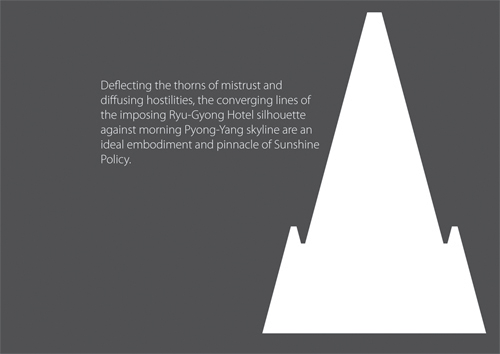The New Neutrality at the Production Floor
© 2006 by Hans Park and David Mervart
The New Neutrality





The New Neutrality by Hans Park and David Mervart
TECTONIC SHIFT OF GEOPOLITICAL ALIGNMENTS
The opening years of the long-awaited, feared, prophesied, and cursed 21st century witnessed a major shift in the shape of our world as a web of power relations, dependencies and established notions of developed and developing.
While undoubtedly Revolutionary, this transformation is unmistakably Restorationary in nature. Amid global realignments of relative economic and strategic weight, the region which is coming back to its own is the Eastern end of Eurasian landmass. A cradle of civilization, the gentle giant of the Realm of the Centre, China, awakens from its brief slumber of a couple of centuries to reassume its rightful place in the spotlights of the world history stage. The planetary order described and run on the terms of Euroamerican culture has at last reached its final stage. To preserve whatever function and benefit there is in the international structures born out of the labour pains of past conflicts and atrocities, it is imperative to accommodate their institutions to the new geopolitical facts of life. Such tasks require a change of government strategies on papers, not only rewriting speech concepts of world leaders. Such task calls first and foremost for a visible symbol of the new order, a tangible object of loyalties and a landmark capturing imagination.
THE MISSING CENTRE
The wider East-Asian region has in recent past been stage to a rebirth and growth of mind-boggling scale. Attention of analysts first and of investors in close succession has focused here for some time. The odd one out who has so far failed, paradoxically, to profit from the unprecedented East Asia boom is its natural centre, the unknown country in the northern part of Korean peninsula. The historical crossroads of cultures, it was through here that writing systems, great inventions, subtle crafts, and inspiring political and religious concepts all found there way from regional centres to peripheries to give rise to the splendour of a Korean kingdom or a Japanese Empire; it was through here again that life-giving energies flowed back from outlying regions to re-fertilize the drying source of civilization.
Instead of riding high on the tide of regional revival, North Korea remains a white spot on the map, entangled in controversies, and caught in a semi-hostile international environment riddled with mutual misunderstanding and fear. There is no resolution to the six-party multilateral talks more definite and yet more natural than that: preserving its political detachment and utmost neutrality, this country is ideally disposed to play host to a plethora of international institutions in search of a location more representative of their purpose in a globalizing world. A new Switzerland remaining outside yet acknowledging its central position. Far from dreaming of Utopia, an identity is clearly pining here to be reinvented as one of strict neutrality and impartial detachment, credibly engaged yet aloof. And the Northern capital of Pyong-Yang, a Geneva of the opening century, is already equipped with a structure predestined to become a new dominant of the nascent world-order.
THE ULTIMATE SUNSHINE POLICY
Rightfully succeeding to the aristocratic halls of Versailles, UN New York headquarters (which umpire Bolton wants cut down by 10 stories anyway) or even the gloomy ghost towers of the World Trade Centre, the Ryu-Gyong Hotel building complex waits to become the seat of international conferences on climate change, negotiations reconfirming the Nuclear Non-Proliferation Treaty and UN general assembly sessions approving reform of the Security Council on a more representative basis. All that against a refreshingly stark backdrop void of lobbyist influences and distracting glitter of neon-lights, safe from terrorist threat in its reclusive and well-guarded location. Free of threat of interference from vested interests and powerful government agents, NGOs have free rein in bringing problematic issues to the attention of world public opinion and in formulating provocative alternatives. Scholars flock in to present their analyses to international bodies, exchange ideas in an ambience unbiased by attachments to structures of colonial heritage present in the traditional metropolitan cities and make use of the state-of-the-art facilities moved here from the decommissioned New York UN floors.
Deflecting the thorns of mistrust and diffusing hostilities, the converging lines of the imposing Ryu-Gyong Hotel silhouette against morning Pyong-Yang skyline are an ideal embodiment and pinnacle of Sunshine Policy.